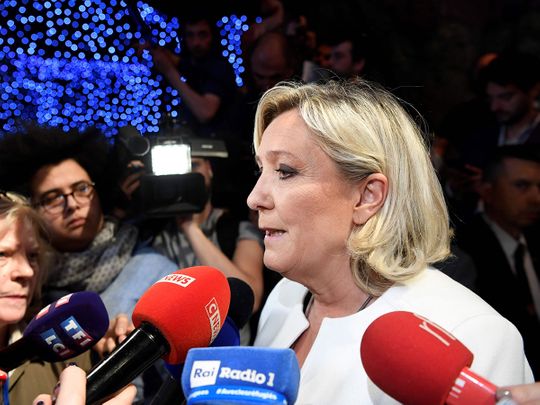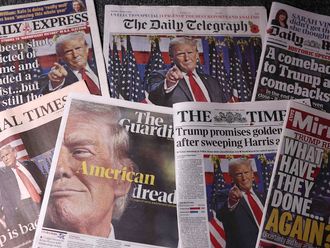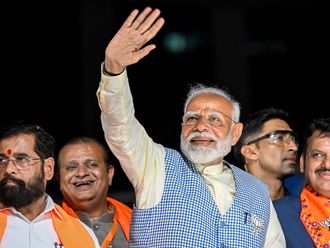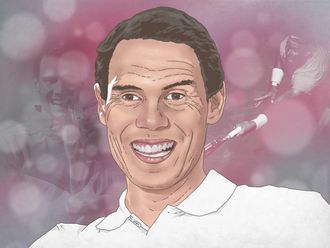
In an electrifying twist to French politics, the far-right National Rally, helmed by Marine Le Pen, has taken a commanding lead in the first round of legislative elections. This development signals a seismic shift in France’s political landscape and poses a significant challenge to President Emmanuel Macron’s administration.
The National Rally’s success is nothing short of monumental. Capturing approximately 33 per cent of the vote, they outpaced the New Popular Front, a left-wing alliance, which secured 28 per cent. Macron’s centrist Renaissance party lagged behind with a mere 20 per cent, a clear indication of the electorate’s growing discontent and shift towards the extremes.
What makes this election particularly remarkable is the voter turnout — nearly 67 per cent of the electorate cast their ballots, a stark contrast to the 47.5 per cent in the previous parliamentary elections in 2022. This heightened participation underscores the election’s high stakes and the voters’ awareness of its potential to reshape Macron’s presidency.
Should the National Rally triumph in the upcoming second round, they could command between 240 and 310 seats in the 577-seat National Assembly, potentially securing an absolute majority. Such an outcome would compel Macron to appoint Jordan Bardella, the 28-year-old president of the National Rally, as prime minister. This would mark a significant shift in France’s domestic and foreign policy, placing a Euro-sceptic party at the helm.
Another layer of complexity
However, the intricate nature of France’s electoral system makes the final outcome far from certain. The second round, involving numerous run-offs, could produce a variety of outcomes depending on alliances and voter turnout. The presence of multiple candidates in many districts — an anomaly due to the high participation rate — adds another layer of complexity.
Adding to the intrigue, Macron’s party is grappling with strategic decisions about whether to withdraw candidates to thwart far-right victories. This internal debate reflects the fractured state of French politics, with Macron’s camp divided on whether to support candidates from the controversial France Unbowed party in these critical run-offs.
The prospect of a far-right government has already sparked significant backlash. Thousands of demonstrators have taken to the streets of Paris to protest the National Rally’s rise, highlighting the widespread anxiety about the party’s ascent. If the National Rally falls short of an absolute majority, France could be plunged into political gridlock, with Macron caught between opposing factions, complicating governance and policy-making.
Financial markets have responded cautiously to these developments. While there is some optimism that the National Rally might not achieve a majority, the possibility of a hung parliament raises concerns about legislative paralysis. This uncertainty could exacerbate France’s economic challenges, particularly given its high debt levels and recent reprimands from the European Union for budgetary indiscretion.
Big shift in political landscape
The National Rally’s success in this election underscores its expanding appeal across diverse demographics. According to a recent study, the party has broadened its base to include retirees, women, younger voters, and higher-income individuals.
This diversification signals a big shift in the political landscape, with the National Rally becoming more representative of the French electorate as a whole.
As France heads into the second round of voting, the stakes could not be higher. The outcome will determine whether Macron can maintain control over his administration or if he will have to opt for a new political reality dominated by the National Rally’s unprecedented rise.
The next few weeks are critical for France, both domestically and on the global stage. The eyes of the world are on France, and the anticipation is palpable.
Rachel Williams is a researcher and columnist exploring the intersection of politics and innovation










